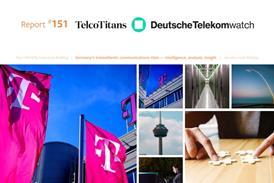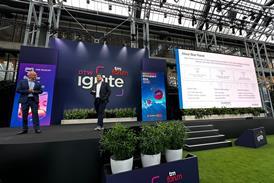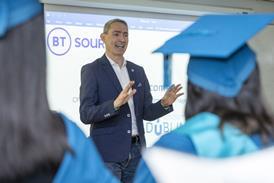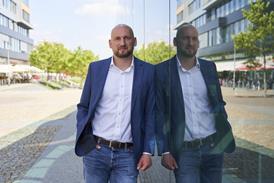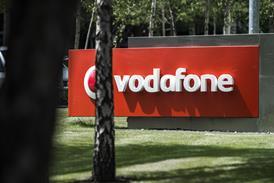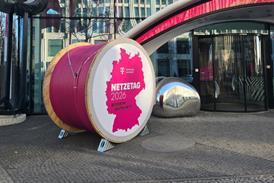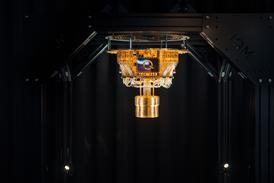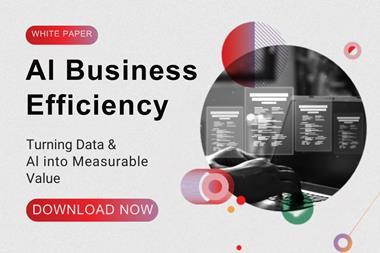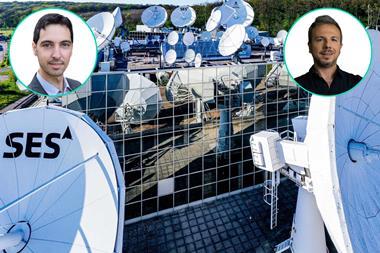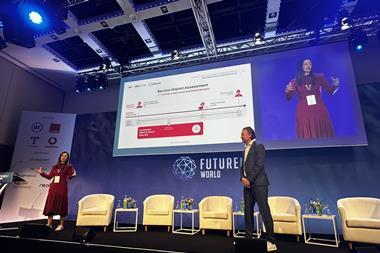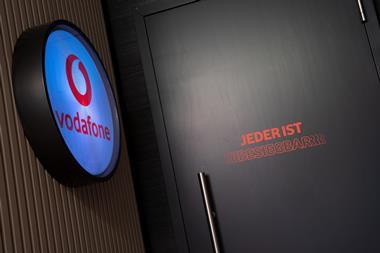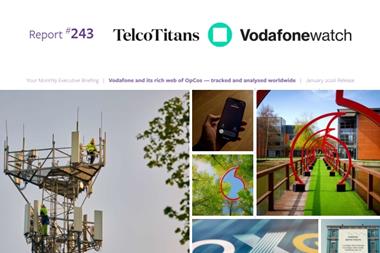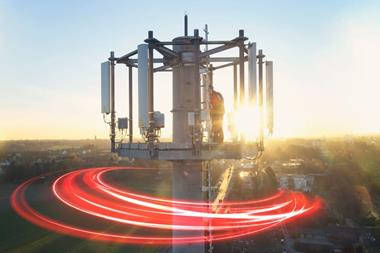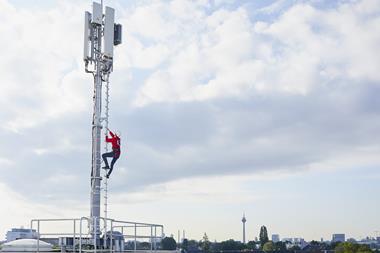- Vodafone has begun applying AI to field services, breaking processes into four stages to target efficiency and consistency, while also boosting customer experience.
- Developed by system integrator Celfocus, Vodafone’s Field Technician Assist on Google Cloud supports engineers with data-driven, AI-led recommendations that harmonise quality and reduce repeated site visits.
- Results to date include 28% reduction in repeated field visits and faster issue resolution, with Vodafone targeting further gains.
- The approach aligns with a wider autonomous networks drive, including addressing the continued human role in the world of zero‑touch networks.
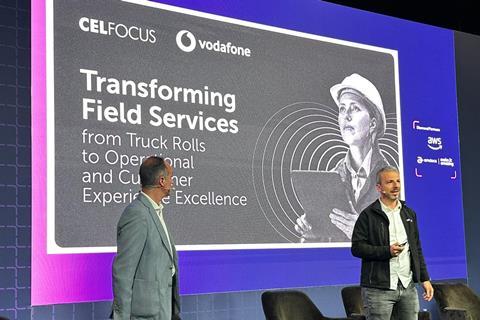
Implementation of AI and its impact on the telco sector was a key theme at the 2025 edition of TM Forum’s DTW Ignite event in Copenhagen, with Vodafone among operators showcasing tangible progress in the physical world.
With AI now enabling many of the advances long‑anticipated in zero-touch networks, Vodafone is achieving benefits within its field services operations that are translating into both greater operational efficiency and improved customer experience — in doing so, tying into two of the key goals of its current corporate strategy.
Emilio Varas, Customer Fulfilment Head of AI and Operations Improvement for Europe at the operator, outlined the measurable gains achieved and indicated that implementation of agentic AI solutions is leading to a virtuous cycle of feedback‑led engineering improvement.
Sharing the stage was Celfocus’s Head of Autonomous Networks, João Miguel Antunes, who sees field services as critical to optimising operations, though also at risk of being overshadowed by focus on service and network.
He highlighted the area as particularly important from a customer experience perspective, and stressed the value of a field services engineer doing “a proper job” when visiting a customer premises — leaving with the problem solved and a happy end‑user.
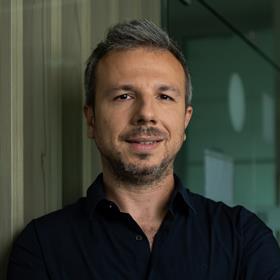
A second key objective is ensuring that the activity is efficient from an operational perspective. Aside from better use of resource, this has knock‑on CX benefits when customers see problems resolved better and faster.
Antunes further stressed the importance of developing a workforce where knowledge is more uniform, enabling a more consistent service, which can be particularly challenging when engineers have different levels of experience and the skills of contractors can be inconsistent.
In applying these guiding principles to its business, Vodafone first took a close look at how field services currently operate across its footprint.
Breaking down the field process for an AI rebuild
Vodafone, explained Varas, has more than 10,000 technicians who visit customer homes for installations, maintenance, and repairs.
Seeking productivity gains, better quality services, and “to make their life easier”, the operator has broken down the field service operational processes into four stages, in order to identify weaknesses and opportunities to improve:
- Travel to and between site visits — Varas says Vodafone engineers drive a total number of kilometres equivalent to circumnavigating the Earth twice a day (around 80,000km). “They just drive”, he said, but “what if we can use AI to improve that? How can we make that time useful for them?”. The operator is looking at enabling technicians to be able to review an audio description that includes context of an issue for upcoming site visits.
- Onsite troubleshooting — getting up to speed on what information is available and what needs to be done to resolve the issue is “another clear stage where we can improve”, according to Varas, with visual support and recommended actions being introduced.
- Onsite quality assessment and verification that the issue is resolved — this can prove challenging, with thousands of engineers equating to potentially thousands of solutions to the same problem. Vodafone is aiming to heighten consistency to improve customer experience using a visual quality assessment of the work.
- Documenting the outcome and closing the ticket — accurate and consistent reporting on actions taken at site visits is a potentially time‑consuming but important contributor to future responses. This is another area where AI offers productivity gains, including voice confirmation of causes and actions taken prior to closing a ticket.
Vodafone has been focusing on these aspects, embarking on an initial project seeking a way to accelerate decision‑making and action, utilising the Field Technician Assist solution built by Celfocus. Antunes explained that this is implemented in Google Cloud in line with Vodafone’s wider digital strategy, and founded on two key assets:
- Data on incidents derived from sources including network and customer premises equipment.
- GenAI and machine learning that can help categorise unstructured data on incidents to make it more valuable in developing recommendations for action.
The Field Technician Assist solution presents engineers with the three best solutions for an incident, which they can evaluate and provide feedback on for future improvement.
The three main objectives here are improved productivity, first time resolution, and quality of resolution. According to Varas, improvements are coming through steadily on all fronts.
To date, the presentation partners have taken their deepest dive into troubleshooting.
Troubleshooting: significant gains that scale for impact
Vodafone has seen a 28% reduction in repeated site visits when using the app, and the amount of time spent by engineers on each incident has reduced by an average of ten minutes when using Field Technician Assist.
“ If you scale this up to a thousand technicians and thousands of interventions, you can imagine the scale of the benefits. ”
Varas.
With less experienced engineers now able to access the same solutions as more experienced technicians, Vodafone is also seeing increasingly “harmonised quality” for fault handling.

Improvements have materialised steadily as the partners’ solution develops, with the 28% reduction in repeated visits associated with the minimum viable product release representing a significant uptick on the 18% reduction initially seen with the proof of concept. Through continued feedback and enhancement, the operator is now targeting 35% reduction in repeated visits.
Vodafone’s ambitions go beyond the troubleshooting aspects of the field services process, with plans to transform further elements. Varas also suggested that the solution could have a role to play in self‑service options for customers.
He further suggested that the capability could have applications for remote agents beyond the field force and in other industries.
“ Think of home appliances, power companies: applicability of this is huge based on the same core; just refining with specific information. ”
Varas.
Zero-touch assurance with a human touch
The progress made on transforming the field services process at Vodafone fits within broader efforts to embrace zero-touch assurance and incident management for its network, as the group pursues key objectives on greater simplicity and improved customer experience.

Also speaking at DTW Ignite, Mabel Pous‑Fenollar, Vodafone’s Head of Digital & Zero Touch Operations, put enhancement of field services operations into the context of ongoing autonomous network efforts for the operator. While there is an increase in focus on code in operations, “people play a pivotal part”, she said.
Pous‑Fenollar underlined the way GenAI is “empowering and augmenting what we can do as humans”, helping speed up decision‑making while maintaining the value of keeping a human in the loop.
The Vodafone executive also sees fault detection as an area where operations can become “very autonomous”, supported by AI, with human involvement evolving from monitoring alarms to monitoring the automation, thus ensuring that observability is maintained.
The impact on Vodafone teams from adoption of zero-touch can spread through the business, according to Pous‑Fenollar, with the group already developing around 140 use cases that explore the opportunities.
She also noted the “huge reduction” in mean time to resolve faults through programmes such as the collaboration with Celfocus. She added that customer operations can be boosted at the same time as the cost of network operations and field services are cut, with GenAI making it more practicable to share usable data with customer teams to further optimise experience.
Improvements are already tangibly delivering on the desired improvement in customer experience, according to Pous‑Fenollar, who shared that “we see an improvement in NPS when we correlate that data [on use cases] and link it to customers”.
Topics
- AI/GenAI/ML (artificial intelligence, agentic, machine learning)
- Automation
- Autonomous networks (zero-touch)
- Celfocus (Novabase)
- Customer/User experience (CX/UX)
- Denmark
- Digital transformation
- DTW Ignite (TM Forum)
- Emilio Varas
- Europe
- Events
- Eventwatch
- Google Cloud
- Industry Voice
- João Antunes
- Mabel Pous-Fenollar
- Network & Infrastructure
- Technology
- Thought Leadership
- TM Forum (TMF)
- Vodafone Group






